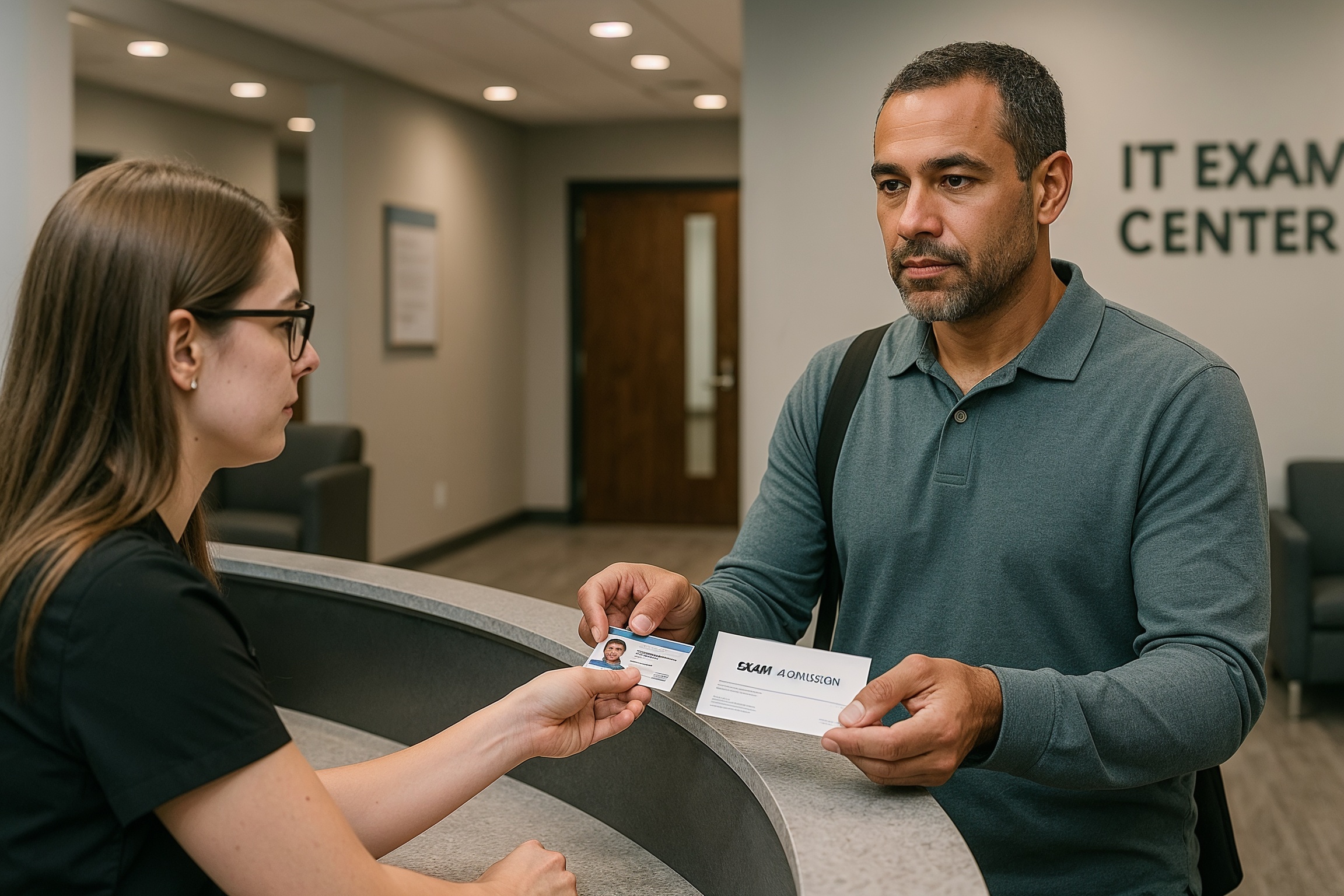Are Entry Level IT Certifications Worth It? Value, Career Impact, and ROI for No-Experience Tech Career Transitions
IT Career Transitions & “No Experience” Entry: Are Entry-Level IT Certifications Worth It?


Are you considering a career change into IT, networking, cybersecurity, or cloud and DevOps, but you are not sure if entry-level IT certifications are worth the investment? This guide is designed for adults exploring IT career transitions & “No Experience” Entry, including career changers, veterans, and tech enthusiasts without a traditional degree. Discover how foundational certifications can accelerate your path to a job-ready role and why they matter more than ever in today’s fast-evolving tech job market.
Entry-level IT certifications provide a recognized, practical, and cost-effective pathway into tech for those with little or no experience. They validate your skills, signal your commitment, and open doors to job opportunities that do not require a college degree, making them a powerful tool for IT career transitions & “No Experience” Entry.
Why Are Entry-Level IT Certifications So Valuable for Career Changers?
For anyone entering tech without prior experience, certifications act as both a skills validator and a confidence booster. They are recognized by employers as proof that you have mastered essential concepts and can perform in a real-world IT environment. Whether you are moving from retail, the military, or another industry, these credentials offer a practical, structured entry point that hiring managers understand and respect.
Key Benefits of Entry-Level IT Certifications
- Immediate Skill Validation: Certifications show employers you have the core technical knowledge needed for support, networking, or cloud roles.
- Career Mobility: They open doors to junior positions and set you up for specialization in high-growth areas like cloud, cybersecurity, or DevOps.
- No Degree Required: Many IT support, cloud, and DevOps jobs value certifications and hands-on ability over a four-year degree.
- Faster ROI: Compared to college programs, certifications can be earned in weeks or months, enabling quicker entry into paid roles.
- Cost-Effective: Exam and study costs are affordable and represent a small investment relative to potential salary gains.
What Are the Best Entry-Level IT Certifications for No-Experience Audiences?
The right certification depends on your career interests, but several foundational options are widely recognized and map directly to in-demand job roles. Here is a visual comparison:
| Certification | Cost | Difficulty | Time to Prep | Target Roles |
|---|---|---|---|---|
| CompTIA ITF+ (Tech+) | $134 | Very Easy | 2–4 weeks | Junior Tech Support, Explorers |
| CompTIA A+ | $246 ×2 | Easy | 2–3 months | Help Desk, IT Support |
| CompTIA Network+ | $358 | Moderate | 3 months | Network Technician |
| CompTIA Security+ | $392 | Moderate | 3–4 months | Cybersecurity Analyst |
| AWS Cloud Practitioner | $100 | Easy | 1–2 months | Cloud Support, Junior Cloud Engineer |
| Microsoft Azure Fundamentals | $99 | Easy | 1–2 months | Cloud/IT Support |
| Google IT Support Certificate | $39/mo | Easy | 3–6 months | IT Support Specialist |
| Cisco CCNA | $300 | Moderate | 3–6 months | Network Admin, Engineer |
Top Certifications Explained
- CompTIA ITF+: Perfect for absolute beginners, providing broad exposure to IT concepts. Great for testing your interest before diving deeper.
- CompTIA A+: The gold standard for IT support roles. Covers hardware, software, troubleshooting, and basic networking. A stepping stone to more advanced paths.
- CompTIA Network+: Ideal for those interested in networking fundamentals, Wi-Fi, switching, and routing.
- CompTIA Security+: The most recognized entry-level cybersecurity certification, often required for government and private sector security roles.
- AWS Cloud Practitioner / Azure Fundamentals: These cloud certifications are in high demand as businesses move services to the cloud. They require no prior experience and are a strong entry point for future cloud and DevOps engineers.
NGT Academy’s programs align directly with these certifications, offering immersive, “military-grade” training that blends exam prep with practical labs and job-ready skills. Explore our Cloud/DevOps Engineering program to see how you can fast-track your transition into high-growth roles.

How Certifications Drive IT Career Transitions & “No Experience” Entry
Certifications are more than just a line on your resume. They are a roadmap for advancing from zero experience to job-ready. Here is how:
- Bridging the Skills Gap: Structured certification paths ensure you learn the right concepts in the right order, covering what employers actually test for in interviews.
- Making You Stand Out: Recruiters often use certifications as screening criteria. For entry-level roles, having an A+, Network+, or Cloud Practitioner credential can get your resume noticed.
- Building Confidence and Credibility: Certifications prove you are ready to contribute, even if you have not worked in IT before.
- Unlocking Career Pathways: Many advanced certifications (and job roles) require foundational certs as prerequisites.
Real-World Outcomes: What Can You Do With an Entry-Level IT Certification?
With the right entry-level certification, you can pursue roles such as:
- IT Support Specialist
- Help Desk Technician
- Network Support Technician
- Cloud Support Associate
- Junior DevOps Technician
- Cybersecurity Analyst (with Security+ or equivalent)
As you gain hands-on experience and pursue more specialized certifications, you can quickly move up to higher-paying positions in cloud engineering, DevOps, network administration, or cybersecurity operations.
Are Entry-Level IT Certifications Worth the Cost?
The return on investment for entry-level IT certifications is compelling. Entry certifications typically cost between $100 and $400, with preparation times of one to four months. In contrast, even entry-level IT roles often pay $18–$28 per hour or more, with salaries rising rapidly as you specialize. Many NGT Academy students report recouping their investment within a few paychecks of landing their first job.
Certifications also help you avoid costly missteps—by trying out IT fundamentals before committing to a four-year degree or expensive career shift, you can confirm that tech is truly the right fit for you.
How to Choose the Right Entry-Level IT Certification
Choosing your starting point depends on your interests and goals. Here is a quick decision guide:
- IT Support/Help Desk: Start with CompTIA ITF+ or A+. These build the foundation for nearly all IT paths.
- Networking: CompTIA Network+ or Cisco CCNA for more technical, infrastructure-focused roles.
- Cybersecurity: CompTIA Security+ is recognized by both government and private employers.
- Cloud/DevOps: AWS Cloud Practitioner or Azure Fundamentals for those aiming at cloud operations and DevOps roles. These pair perfectly with NGT Academy’s immersive Cloud/DevOps track.
Consider your desired work environment, the types of problems you enjoy solving, and review job postings in your area to see which certifications are frequently requested.
Maximizing ROI: Steps to Succeed With Entry-Level IT Certifications
The 5-Step Success Framework
- Clarify Your Target Role: Decide whether you want to start in IT support, networking, cybersecurity, or cloud/DevOps.
- Select the Right Certification: Match your choice to your career goal using the guide above.
- Use Quality Study Resources: Rely on official study guides, practice exams, and hands-on labs. NGT Academy’s programs offer all three.
- Practice in Real Environments: Use labs and simulations to reinforce your skills, not just memorize facts.
- Get Support from a Community or Mentor: Join study groups, bootcamps, or leverage mentorship—this dramatically improves pass rates and confidence.
Why Hands-On Training Matters
Employers value candidates who can demonstrate their abilities, not just talk about them. That is why NGT Academy’s Cloud/DevOps and networking programs are built around immersive labs and real-world scenarios. This approach prepares you for both the exam and your first day on the job.

Entry-Level Certifications vs. College Degrees: Which Is Better for IT Career Transitions?
Many IT employers now prioritize certifications and skills-based assessments over traditional degrees for junior and mid-level roles. Certifications are focused, affordable, and relevant to current technologies, while degrees can be expensive and may not cover today’s cloud, cybersecurity, or DevOps practices.
For those seeking IT career transitions & “No Experience” Entry, certifications offer a faster and more direct route into the workforce, with the flexibility to specialize or stack additional credentials as you grow.
Next Steps: Turn Your Certification Into a Real IT Job
After earning your first certification, your next steps are to build hands-on experience and connect with employers who value certified, motivated career changers. NGT Academy’s Cloud/DevOps Engineering program and DevOps/Cloud Advanced Track are tailored to help you turn your certification into a job offer—with live instruction, mentorship, and career coaching built in.
FAQ
What are the best entry-level IT certifications for someone with no experience?
CompTIA A+, CompTIA ITF+, AWS Certified Cloud Practitioner, and Microsoft Azure Fundamentals are top choices for career changers and those new to IT. These certifications cover foundational knowledge and map to roles like IT support, cloud operations, and junior network technician.
How fast can I get an IT job after earning a certification?
Many NGT Academy students find entry-level roles within a few months of earning their certification, especially when combined with hands-on labs and practical experience. The timeline depends on your study pace, job search strategy, and chosen certification.
Do I need a college degree to start an IT career?
No, most entry-level IT support, networking, and cloud roles value certifications and demonstrated skills over a four-year degree. Certifications and hands-on experience are often sufficient to land your first role.
Are entry-level IT certifications recognized by employers?
Yes, certifications from CompTIA, AWS, Microsoft, and Cisco are widely accepted and often required or preferred for entry-level IT jobs. They are used as a benchmark for skills and commitment.
How do NGT Academy programs help with IT career transitions?
NGT Academy offers immersive, skills-based training that maps directly to top certifications and job roles. With live instruction, mentorship, real-world labs, and career coaching, we help career changers and beginners become job-ready faster.
